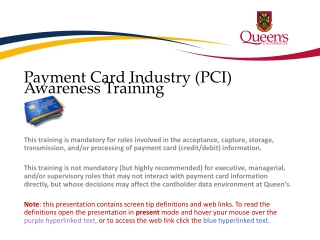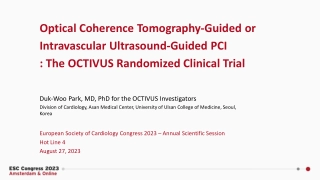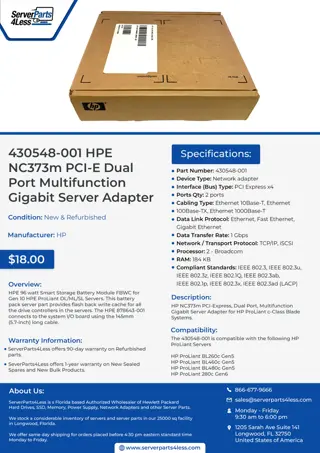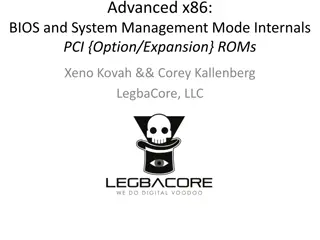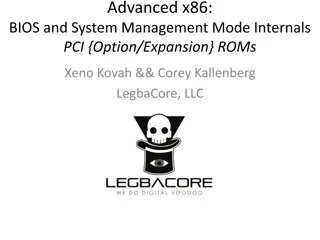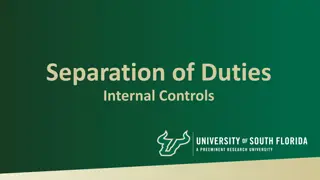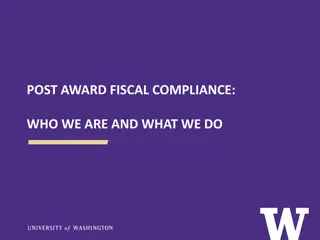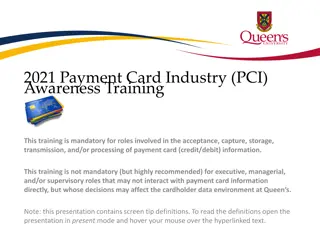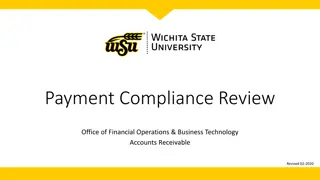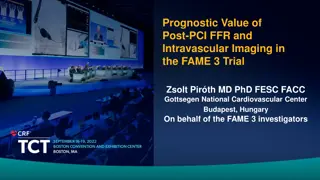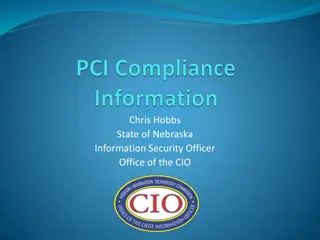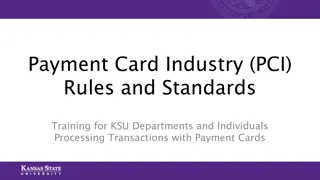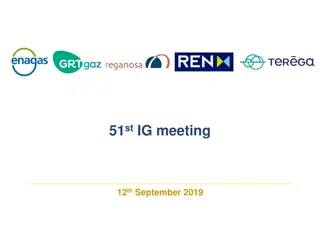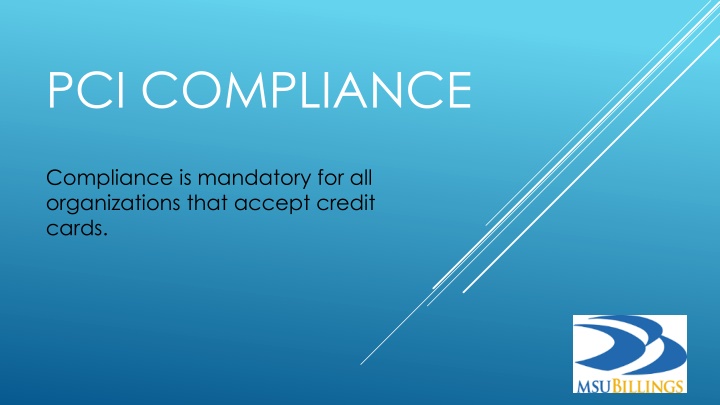
Data Security Best Practices for Accepting Credit Cards
Learn about the importance of PCI compliance and best practices to secure credit card information, including examples of data breaches and financial exposures. Follow essential do's and don'ts to protect customer data and avoid cyber threats.
Download Presentation

Please find below an Image/Link to download the presentation.
The content on the website is provided AS IS for your information and personal use only. It may not be sold, licensed, or shared on other websites without obtaining consent from the author. If you encounter any issues during the download, it is possible that the publisher has removed the file from their server.
You are allowed to download the files provided on this website for personal or commercial use, subject to the condition that they are used lawfully. All files are the property of their respective owners.
The content on the website is provided AS IS for your information and personal use only. It may not be sold, licensed, or shared on other websites without obtaining consent from the author.
E N D
Presentation Transcript
PCI COMPLIANCE Compliance is mandatory for all organizations that accept credit cards.
TRUMP 2015 In 2015, both the TRUMP HOTEL COLLECTION and the HILTON HOTELS were breached by hackers. The details are not out but the numbers are into the thousands.
January 10, 2013 Texas Southern University's radio station KTSU gave a volunteer position to a person with a criminal history of credit card fraud. The volunteer was later arrested for allegedly using the radio station's donation drive to steal credit card information. The dishonest volunteer faces up to 300 counts of credit card fraud for attempting to use the information on donor pledge sheets.
Financial Exposures to a Breach 1) Forensic Examination cost of consultant fees 2) Notification of Third Parties cost of mailing a formal notification to customers 3) Call Centers cost of staffing and supplies to handle incoming calls 4) Credit or Identity Monitoring approx. $30/account 5) Public Relations Loss of reputation with customers, suppliers, partners and loss of future revenue 6) Legal Defense - Possible civil litigation from breached customers - 7) Regulatory Proceedings, Fines and Penalties $50-$100 fine/account compromised 8) Comprehensive Written Information Security Program cost of consultant fees 9) Loss of credit card privileges approx. 70% of MSUB students use credit cards to pay some or all of their tuition
DO and DONT Do not accept CHD from an email or FAX. Do not enter into any computer CHD, all documents leave hidden files when deleted. Do not enter CHD into a third party software system for a customer. Under certain circumstances you may take credit cards over the phone. Under certain circumstances you may process CHD received via postal or express mail services. Secure your CHD storage areas when not attended. Do not store CHD long term, only Business Services will store for long term any paper media related to CHD Secure devices that capture and transmit CHD, POS and swipe card systems Inspect these devices for tampering or substitution Report any suspected tampering or fraud to the CIO, Business Services Director or the Vice Chancellor of Administration Materials must be secured in safes, file cabinets, locked rooms or storage areas with limited access to those personnel All employees with access to CHD must be trained annually.
http://www.msubillings.edu/boffice/Policy%20&%20Procedures.htm https://www.pcisecuritystandards.org/pdfs/pcissc_overview.pdf https://www.pcisecuritystandards.org/pdfs/pci_fs_data_storage.pdf PCI RELATED MATERIALS

